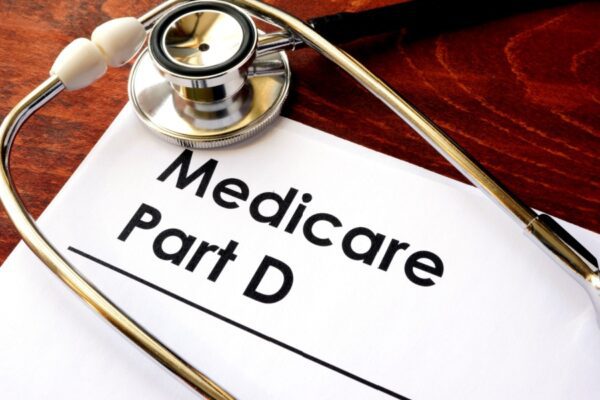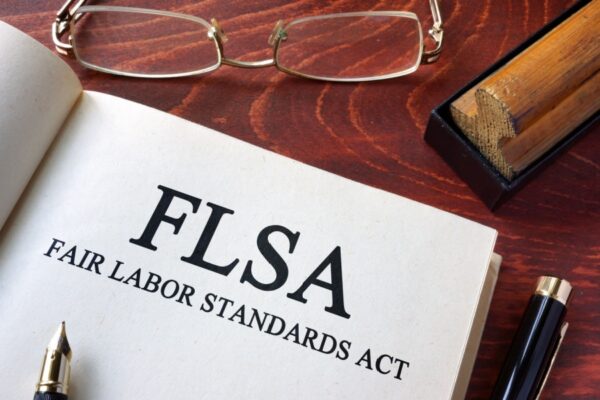The 2022 Inflation Reduction Act (IRA) comprises various cost-reduction measures that will influence Medicare Part D plans, potentially altering the creditable coverage status of employer-sponsored prescription drug coverage starting from 2025.
Employers that provide prescription drug coverage to individuals who are eligible for Medicare Part D must inform these individuals and the Centers for Medicare and Medicaid Services (CMS) whether their prescription drug coverage is creditable, meaning that the employer’s prescription drug coverage is at least as good as Medicare Part D coverage.
CMS’ Draft Part D Redesign Program Instructions state that given the significant changes that the IRA made to Medicare Part D, one of the methods for determining whether employer-sponsored prescription drug coverage is creditable will no longer be valid as of calendar year 2025. These draft program instructions are subject to change, and CMS will issue final program instructions for 2025 after considering the public comments received in response to the draft program instructions.
- Employers should monitor CMS’ final program instructions for 2025, which are expected to be published no later than April 1, 2024.
- Employers should confirm whether their health plans’ prescription drug coverage for 2025 is creditable or non-creditable as soon as possible to prepare to send the appropriate Medicare Part D disclosure notices.
Creditable Coverage Determination
A group health plan’s prescription drug coverage is considered creditable if its actuarial value equals or exceeds the actuarial value of standard Medicare Part D prescription drug coverage, as demonstrated through the use of generally accepted actuarial principles and in accordance with CMS guidelines. In general, this actuarial determination measures whether the expected amount of paid claims under the group health plan’s prescription drug coverage is at least as much as the expected amount of paid claims under the Medicare Part D prescription drug benefit. For plans that have multiple benefit options (for example, PPOs, HDHPs and HMOs), the creditable coverage test must be applied separately for each benefit option.
Under existing CMS guidance, there are a few different ways for an employer to determine whether its prescription drug coverage is creditable:
- As a first step, employers with insured prescription drug plans should ask their carriers whether they have determined whether the plan’s coverage is creditable.
- For self-insured plans, or where the carrier for an insured plan has not made a determination about whether the plan is creditable, employers may use a simplified determination—as long as the coverage meets certain design requirements. If it doesn’t, the employer must use an actuarial determination method. However, CMS has stated that the simplified determination method will no longer be a valid methodology to determine creditable coverage status as of calendar year 2025.
According to CMS, as of calendar year 2025, the simplified determination methodology will no longer be valid to determine whether an entity’s prescription drug coverage is creditable.
More information and resources on the IRA’s changes to Medicare Part D are available on CMS’ Part D Improvements webpage.
Disclosure to Individuals
Plan sponsors must provide creditable coverage disclosure notices to individuals each year before Oct. 15—the start date of the annual enrollment period for Medicare Part D. The disclosure notice alerts individuals as to whether their plan’s prescription drug coverage is creditable. Model notices are available for employers to use.
Disclosure to CMS
The disclosure to CMS is due within 60 days after the start of each plan year. For calendar year plans, this deadline is March 1 of each year (Feb. 29 for leap years). Plan sponsors are required to use CMS’ online disclosure form.
Enforcement
There is no penalty or fee for the employer for offering prescription drug coverage that is non-creditable. Non-creditable prescription drug coverage can still be a valuable benefit for employees. However, individuals need to know whether their prescription drug coverage is creditable or non-creditable. If the coverage is non-creditable and Medicare-eligible individuals fail to enroll in Part D during their initial enrollment period, they can be subject to a higher Part D premium if they enroll in Part D at a later date.
There are also no specific penalties for employers that fail to comply with the Medicare Part D disclosure requirements, except for employers that are claiming the Retiree Drug Subsidy. However, by not providing creditable coverage disclosure notices, employers may trigger adverse employee relations issues. In addition, noncompliant employers may indirectly face consequences under other federal laws (such as the Employee Retirement Income Security Act’s fiduciary duty provisions).
Material posted on this website is for informational purposes only and does not constitute a legal opinion or medical advice. Contact your legal representative or medical professional for information specific to your legal or medical needs.




